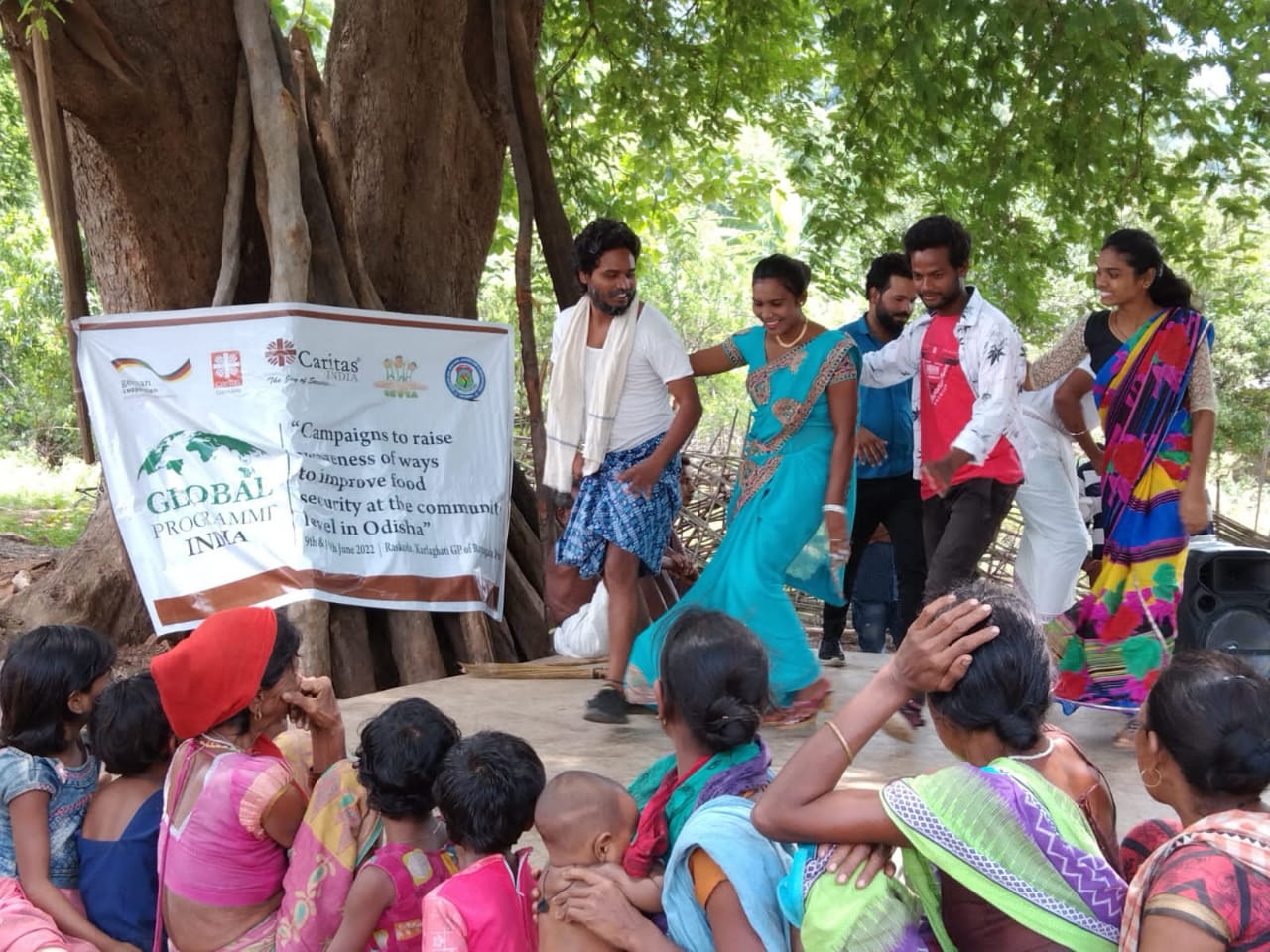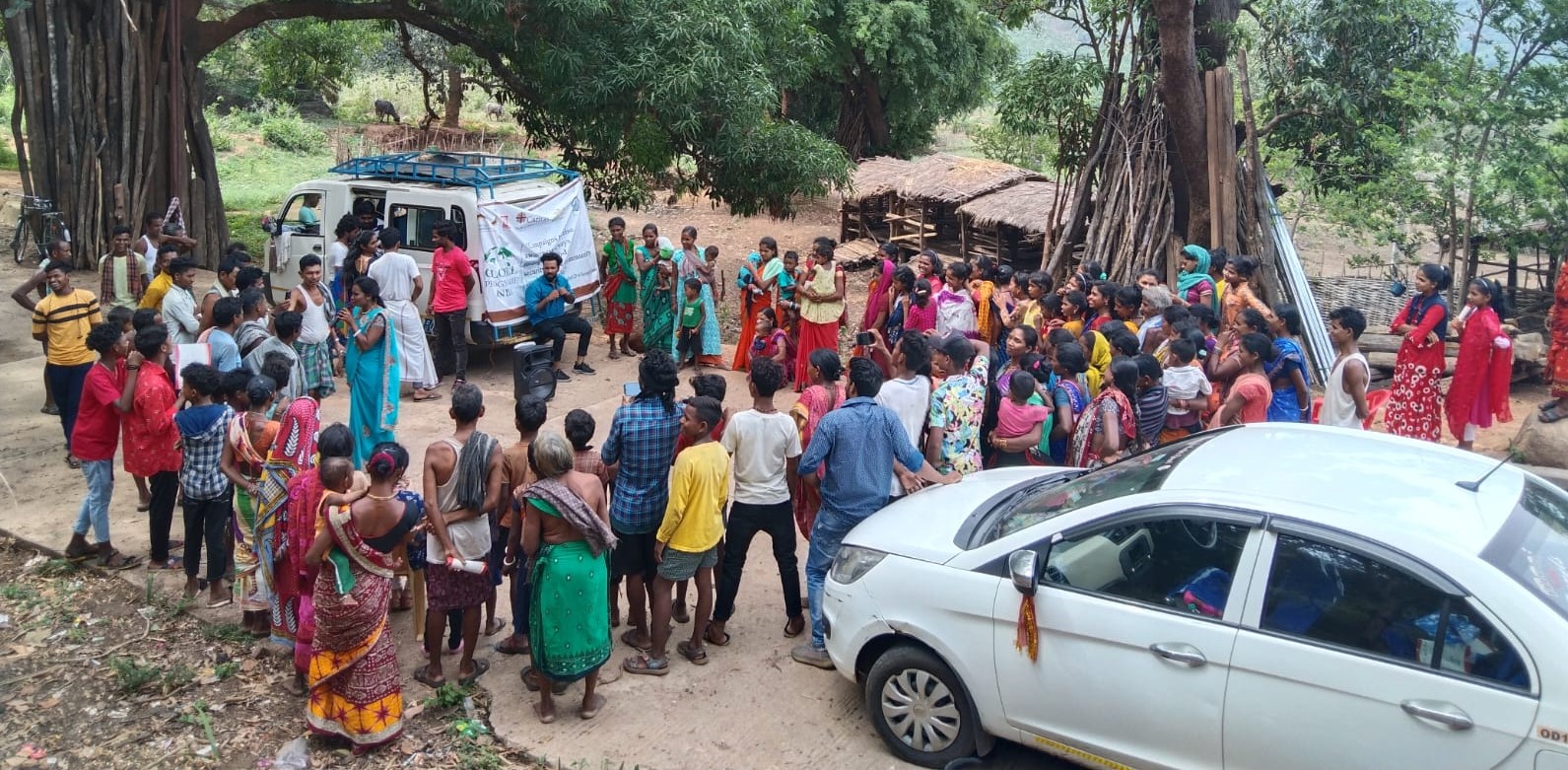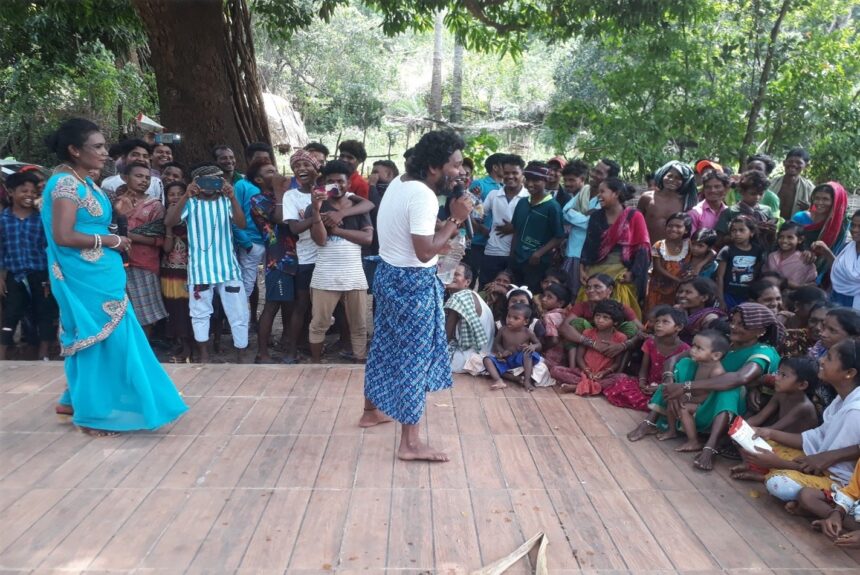In a remote village of Rayagada District – One of the most poverty-stricken districts in Odisha – a large crowd is gathering to see the play.
Elders, children and mothers with an infant strapped to their side have circled to see the play. Street play is a very famous mode of entertainment for the rural population, and no one wants to miss what this group is planning to perform.
The play centred around a girl child who was forced to get married. After a few days, she became pregnant, and with no proper food and nutrition, she suffered from anaemia. The situation became so worse that she succumbed to death. The play raised the social issue of child marriage, lack of education, and the importance of balanced food to the forefront of public imagination and reached out to the communities and individuals affected by them.

The artists portrayed through their performance that the right age for marriage is after 18 years for girls and 21 years for boys. They shared the information on having a Tri-Colored balanced diet regularly. Dal. Jaggery, fruits, white milk, rice, and green leafy vegetables give strength to our body and especially to the children, the play portrayed.

Caritas India Global Program under its #We4Resilience campaign has adopted the street play method to reach out to the most marginalised and vulnerable population in 5 intervention villages (namely, Raskola, Baberi, Podi Panga, Malaguda, Biripanga) of SWAD Rayagada on 17th and 18th June. The District of Rayagada is predominantly a Tribal district with 88% population belonging to tribals. The literacy rate is only 56% which is the biggest challenge in communicating health messages to the communities. According to NFHS-4, 2015-16 data, 34.4% of girls are married within 18 years of age and give birth to a low-birth-weight baby and themselves are at high-risk pregnancies.
The program has carefully selected these places for street play to sensitise people on the social issues of child marriage, a balanced diet for pregnant, nursing mothers & adolescent girls, and compulsory Elementary Education for both boys and girls, to a large group of people. Arround1200 people on average, in each village witness these street plays including Pregnant women, Lactating Mothers, Adolescent girls, boys and Anganwadi workers.
The program field animators also distributed pamphlets on the aim and objectives of ICDS, Health & Nutrition education, services, and beneficiaries’ details to help the community get more clarity on ICDS programs.
The community leaders at the grassroots level praised the efforts and suggested having such plays frequently. The dearth of information on the social issues is what makes the tribal people lag. The Global program continues its campaign to raise awareness on nutrition and food security to improve the quality of life.


Leave a Reply